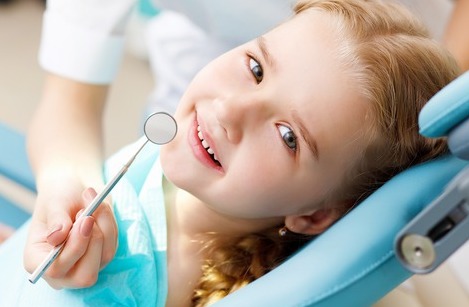How can we prevent tooth decay in children?
Correct diet : Too much sugar as well as sticky food in the diet, and dental plaque on the teeth, is the main causes of tooth decay and gum disease.
Oral hygiene and plaque control: It is important to maintain oral hygiene by brushing twice a day and rinsing after every meal.
Fluoride : Fluoride makes the teeth more resistant to decay and can also reverse initial decay process. Professional fluoride application can be done by the dentist in the form of gels or varnishes
Fissure sealants : They are thin composite materials that are placed in the fissures of a newly erupted permanent tooth. They aid in making the tooth surface more smooth and easy for maintenance.
When Should I Take My Child to the Dentist for the First Time?
Children should visit a dentist when their first tooth comes in or no later than their first birthday.
Why should baby teeth be filled or repaired?
Baby teeth that have decay should be restored to prevent the decay from spreading.
Baby teeth should be cared for as they serve the same important purposes as the permanent teeth.
Baby teeth should be kept in place until they are replaced by permanent teeth. They reserve the space for the permanent teeth to grow into.
If baby teeth are lost/extracted too early, the adjoining teeth can drift into the spaces that are needed for the permanent teeth. This can then cause crowding problems, because there is insufficient space for the permanent teeth.
Decayed teeth causing pain will also discourage the child from eating thereby affecting the general health also.
What is the importance of baby teeth?
Even though your child will one day lose his/her primary/milk teeth, it is important to care for them. The primary/milk teeth are essential for everyday function such as eating and speech development. Early childhood decay, is a preventable condition that causes painful teeth and gums. The primary teeth are also important to provide space for the larger adult teeth to erupt later.
